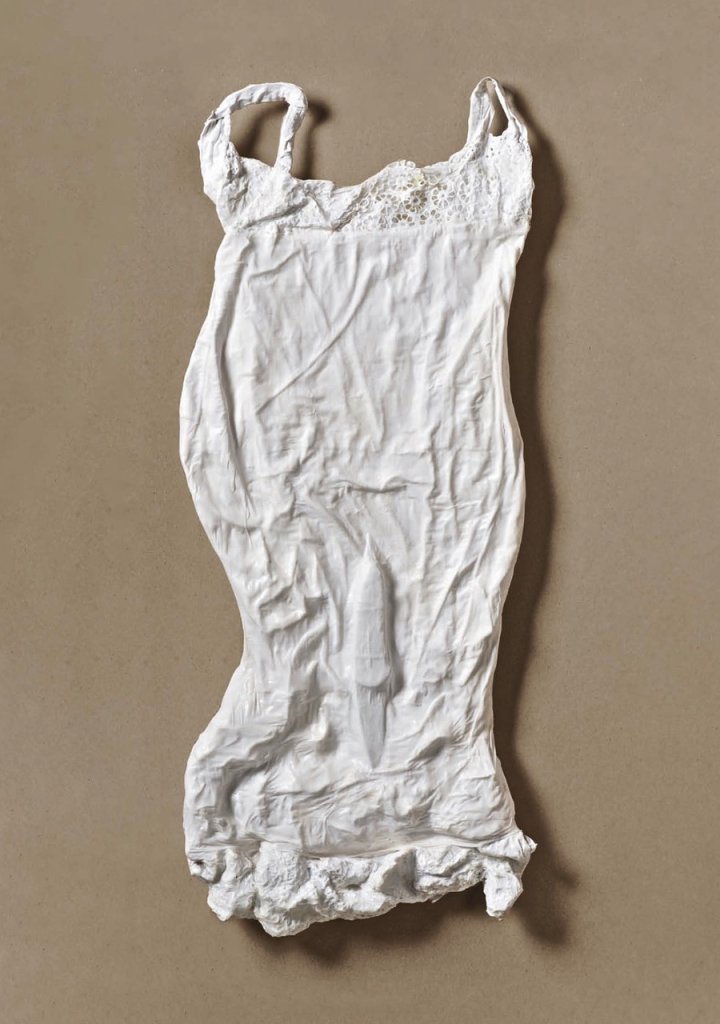Exhibitions › Forgotten Innocence (Venice)

Another element of the „Forgotten Innocence“ project are women‘s camisoles. Perhaps no other garment hides so many mysteries. How much intimacy do they shroud, how much love and determination do they hide, how many scents do they offer, with how many tears is this piece of fabric imbued. There is perhaps no more poignant item of human clothing, as evidenced not only by the artist‘s delicate assemblage created with this symbolism in mind, but also by the video art of a freshly washed, soap-scented chemise blowing in the Venetian summer sun, ready for the next joy and pain of a woman‘s interminable lot.
Daniel Pešta created the series of assemblages “Forgotten Innocence” between 2017 and 2020 as a reflection on the role of women in both a broader social, religious or political context as well as within the family. This time, he works with the characteristic features of women’s hair in the form of plaits – symbols that are expressions of feminine individuality while, at the same time, the tight-knit plaiting of this traditional hairstyle can symbolise fear, anxiety, limitation. On the other hand, the appearance of loose hair is sometimes seen as a sign of vanity, defiance or public outrage; in the Middle Ages it was even seen as evidence of shamelessness and witchcraft. Some religions and laws still prohibit women from exposing their hair.
For each plaited object Pešta has used real hair of a different colour. Fair, brown and black. All three plaits are literally “amputated” at the very root on the head and the “wounds” are treated with bandages.
Beneath these items are simple messages written in “blood”, such as “My blood was wild”, “My blood was free“, “My blood was hot“. It is precisely the past tense in these messages that points out emotions girls often have to resign themselves to, sometimes hide or suppress completely during their lives. Women’s hair thus becomes a kind of memento of long-forgotten innocence, suppressed freedoms, perhaps humiliation and loss of self-esteem.
Another element of the “Forgotten Innocence” project are women’s camisoles. Perhaps no other garment hides so many mysteries. How much intimacy do they shroud, how much love and determination do they hide, how many scents do they offer, with how many tears is this piece of fabric imbued. There is perhaps no more poignant item of human clothing, as evidenced not only by the artist’s delicate assemblage created with this symbolism in mind, but also by the video art of a freshly washed, soap-scented chemise blowing in the Venetian summer sun, ready for the next joy and pain of a woman’s interminable lot.
European Cultural Centre, 2024
European Cultural Centre
Palazzo Mora
Strada Nuova 3659
30121 Venezia
Venice Biennial Art exhibition 2024
„Personal Structures“
20 April 2024 until 24 November 2024
https://europeanculturalcentre.eu/